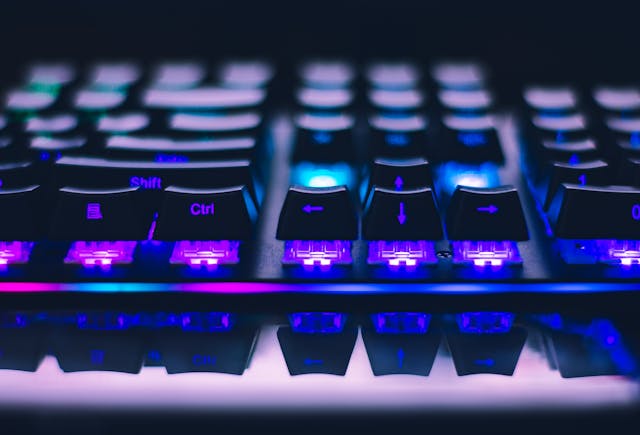In recent years, the intersection of quantum computing and artificial intelligence (AI) has paved the way for groundbreaking advancements in various industries. One such industry is trading, where “Quantum AI” has emerged as a promising technology. By combining the power of quantum computing and AI algorithms, “Quantum AI” is revolutionizing the way trading is conducted, and further information can be found by visiting https://quantumaiplatform.com/. In this article, we will delve into the world of Quantum AI in trading, exploring its potential, benefits, challenges, and the future it holds.
Table of Contents
Understanding Quantum AI
To truly comprehend the impact of Quantum AI in trading, it is crucial to grasp the fundamentals of quantum computing. Unlike classical computers, which use bits as the basic unit of information, quantum computers utilize quantum bits or qubits. These qubits exploit quantum phenomena such as superposition and entanglement to perform computations at speeds far surpassing traditional computers.
When AI techniques are combined with quantum computing, the resulting field is known as Quantum AI. By leveraging the immense computational power and speed of quantum computers, Quantum AI algorithms can process vast amounts of data and perform complex calculations, surpassing the capabilities of classical AI algorithms.
The Basics of Quantum Computing
Quantum computing operates on the principles of superposition and entanglement. Superposition refers to a qubit existing in multiple states simultaneously, exponentially increasing computational possibilities. Entanglement, on the other hand, allows qubits to be interconnected, enabling quantum computers to perform parallel computations.
These quantum phenomena enable quantum computers to solve certain problems much faster than classical computers. For example, factoring large numbers, which serves as the basis for encryption, is significantly expedited by quantum computing.
How AI is Integrated into Quantum Computing
AI techniques can be integrated into quantum computing to enhance data analysis, prediction, and decision-making capabilities. Machine learning algorithms, such as neural networks, can be fine-tuned using quantum algorithms to achieve higher precision in trading predictions. Additionally, AI algorithms can assist in optimizing resource allocation and risk assessment in trading strategies.
The Evolution of Trading Technology
Before delving deeper into Quantum AI in trading, it is vital to understand the evolution of trading technology. Traditional trading systems relied heavily on human intervention and manual execution. Traders would analyze market trends, identify opportunities, and execute trades manually.
Traditional Trading Systems
Traditional trading systems primarily involved executing trades based on human assessments of market conditions. While these systems were effective to a certain extent, they were limited by human biases, emotions, and cognitive limitations. As a result, trading decisions were prone to human error and could suffer from inefficiencies.
The Shift Towards AI in Trading
Recognizing the need for improved efficiency and accuracy, the trading industry began incorporating AI techniques into trading systems. AI algorithms could analyze vast amounts of historical data, identify patterns, and make data-driven predictions. This shift towards AI in trading significantly enhanced decision-making and automated trading processes.
Quantum AI in Trading
Quantum AI has emerged as a game-changer in the trading industry. By leveraging the power of quantum computing and AI algorithms, Quantum AI is transforming the way trading is conducted.
The Role of Quantum AI in Modern Trading
Quantum AI algorithms analyze massive amounts of financial data, historical patterns, and market trends to generate precise trading signals. These algorithms enable traders to make informed decisions, minimize risks, and capitalize on emerging market opportunities. The speed and complexity of computations performed by Quantum AI algorithms empower traders to respond swiftly to market fluctuations.
Benefits of Quantum AI in Trading
The benefits of Quantum AI in trading are numerous. Firstly, Quantum AI algorithms can process vast amounts of data at unprecedented speeds, enabling real-time decision-making. This agility provides traders with a competitive edge in rapidly changing markets.
Secondly, Quantum AI algorithms possess superior pattern recognition capabilities. By analyzing intricate patterns in financial data, Quantum AI algorithms can identify subtle market trends and predict market movements with greater accuracy than traditional AI algorithms.
Lastly, Quantum AI in trading enables better risk management by using complex optimization techniques. Traders can minimize portfolio risks, allocate resources efficiently, and identify trade-offs between risk and reward.
Challenges and Solutions in Quantum AI Trading
While Quantum AI in trading offers immense potential, it is not without its challenges. Understanding and overcoming these challenges is crucial for the successful integration of Quantum AI into trading strategies.
Potential Risks and Limitations
One of the significant risks associated with Quantum AI in trading is the ramifications of faulty or biased algorithms. If Quantum AI algorithms are not rigorously tested and validated, they may produce inaccurate predictions or decisions, leading to financial losses.
Furthermore, the scalability of quantum computers poses a challenge. As of now, quantum computers are limited in capacity, restricting the complexity of computations that can be performed. However, ongoing research and technological advancements aim to address these limitations.
Overcoming Challenges in Quantum AI Trading
Efforts are underway to mitigate the risks and limitations of Quantum AI in trading. Thorough testing and validation of Quantum AI algorithms can help ensure their accuracy and reliability. Collaboration between quantum computing experts and trading professionals is also crucial to developing robust and trustworthy Quantum AI systems.
Furthermore, advancements in quantum hardware are being pursued to enhance the scalability of quantum computers. These advancements will enable more extensive computations and further propel the capabilities of Quantum AI in trading.
The Future of Quantum AI in Trading
The potential for Quantum AI in trading is vast, and the future looks promising. As technology continues to progress, Quantum AI is expected to play an increasingly significant role in shaping the trading landscape.
Predicted Trends in Quantum AI Trading
One of the predicted trends is Quantum AI’s integration with blockchain technology. Blockchain offers transparent and secure transaction tracking, making it an attractive technology for traders. Combining the power of Quantum AI with blockchain can enhance trading efficiency and security.
Additionally, Quantum AI is foreseen to enable real-time portfolio optimization and risk management. Traders will be able to dynamically adjust their portfolios based on market changes, optimizing risk and maximizing returns.
Preparing for a Quantum AI-Driven Trading Landscape
To thrive in a Quantum AI-driven trading landscape, it is crucial for traders to stay updated with advancements in both quantum computing and AI. Investing in research and education, and fostering collaborations between traders and quantum scientists will be instrumental in harnessing the potential of Quantum AI in trading.
In conclusion, Quantum AI is ushering in a new era in trading technology. By harnessing the power of quantum computing and AI algorithms, Quantum AI in trading is transforming the industry. While challenges exist, continuous innovation and collaboration are paving the way for a future where Quantum AI becomes an integral part of trading strategies, enabling traders to stay ahead of the curve and make data-driven, informed decisions with unparalleled accuracy and efficiency.






